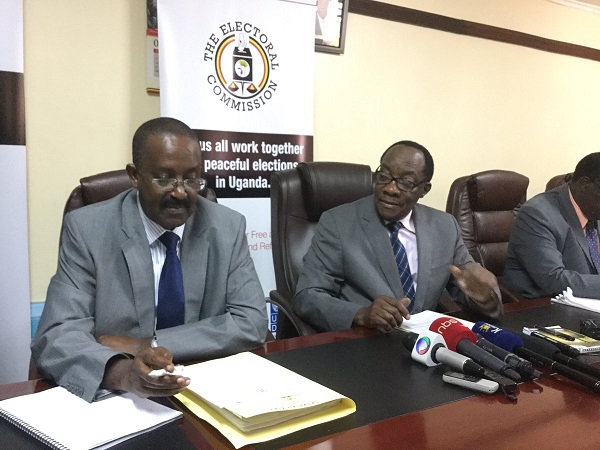
COMMENT: By Mwambutsya Ndebesa
Countries that have been hailed for making headway in democratic transitions respect impartiality
Electoral governance is very central in the transition to a democratic dispensation. In fact, the appointment of the electoral commission is a test of whether the country has chosen to take the path of democratic transition or one of sliding back into authoritarianism. The nature of electoral governance can lead to conflict management or conflict escalation. Electoral governance can be a tool for fighting corruption or promoting it. This is because those elected corruptly are more likely to engage in corruption after assuming the office and those elected with integrity are more likely to serve with integrity. Electoral governance can be used as an instrument of building political consensus in a country or as an instrument for political manipulation and, therefore, disharmony. Electoral good governance and management can be a tool for better management of diversity in a heterogeneous country like Uganda.
A history of electoral governance in Uganda is a negative one. In the 1961 general elections, the potential voters in Buganda Kingdom were intimidated and harassed out of registration and voting but the then electoral commission did little to avert that practice. In the 1962 elections, and again especially in Buganda Kingdom, the electoral commission appointed locally and controlled by the then Mengo government heavily rigged elections in favour of Kabaka Yeka (KY) party against the Democratic Party (DP). In the 1980 elections the then head of state Paul Muwanga compromised the electoral commission results in favour of Uganda Peoples Congress (UPC). Since the 1990s, the Uganda electoral commission has been accused of bias as manifested in the High and Supreme Court petition judgments as well as in the reports of election observers.
There is a positive correlation between the conduct of the electoral commission and the quality of the democratic process in democratic transitions like Uganda. Actually in Sub-Saharan Africa, the countries that have been hailed for making headway in democratic transitions since the wind of change or is it the change in the wind of the 1990s, are Benin and Ghana. It is no coincidence that the electoral commissions of these countries have also been rated among the best electoral commissions in respect of impartiality on the African continent. On the other hand the countries that analysts have placed in categories of democratic blocked transitions in Africa such as Togo and Cameroon have biased and partisan electoral commissions.
Therefore, the process of appointing electoral commissioners needs much attention and scrutiny. The following are the tips for appointing impartial and competent electoral commissioners in Uganda today;
- The person to be appointed a member of the electoral commission should be having a history of impartiality in conducting public affairs.
- This person should not be holding nor should have held a political party position or post in the last five years. Note that there is a difference between a post and a position. A position is any high place within the hierarchy of a party such as an MP or party leader of any kind be it chairman or member of the executive. A post refers to employment in the party such as being a party civil servant at the national or district secretariat.
- This person should have a history of independent mindedness in thinking and debating issues of public concern.
- The person should not hold any other public office—like it is with the current chairman of the EC who is also the technical supervisor of Karuma Dam construction.
- She/he should be a woman or man of integrity with a history of interest in sacrificing and commitment to serve the common good rather than the private good.
- This person should have a demonstrated national outlook behavior and attitude and not parochial or tribal both in rhetoric and practice.
- This person should either have expertise in managing public affairs or at least have knowledge of electoral systems and electoral governance.
As they say a politician looks at the next elections but a statesman looks at the next generation. The authorities mandated to conduct the process of appointing the commissioners should be statesmen and women and not politicians. The vetting process for appointing the new commissioners should also be subjected to public scrutiny. The parliamentary appointments vetting committee should allow public participation and interaction. There should be public hearings and comments as is the practice in the other standing committees of parliament. Of course it would have been better if the constitution was reviewed and a less politicised body, such as the judicial or public service commission ideally select, interview and recommend to the president for appointment. Thereafter parliament would come in to vet the names as a matter of formality.
In my opinion, the politics of constituting the electoral commission and the mode of appointing this important body will either build or destroy Uganda depending on whether the men and women in the political class decide to be statesmen and look at building for the next generation or decide to be politicians and look at how to win the next elections. A transparent exercise for appointment of the commissioners and the executive secretary of the electoral commission is the only guarantee for the independence, impartiality, non-partisanship, credibility and legitimacy of the commission and by extension for elections in Uganda.
****
Mwambutsya Ndebesa is a lecturer in the History Department of Makerere University
****
Email:ndebesam@yahoo.com
 The Independent Uganda: You get the Truth we Pay the Price
The Independent Uganda: You get the Truth we Pay the Price



